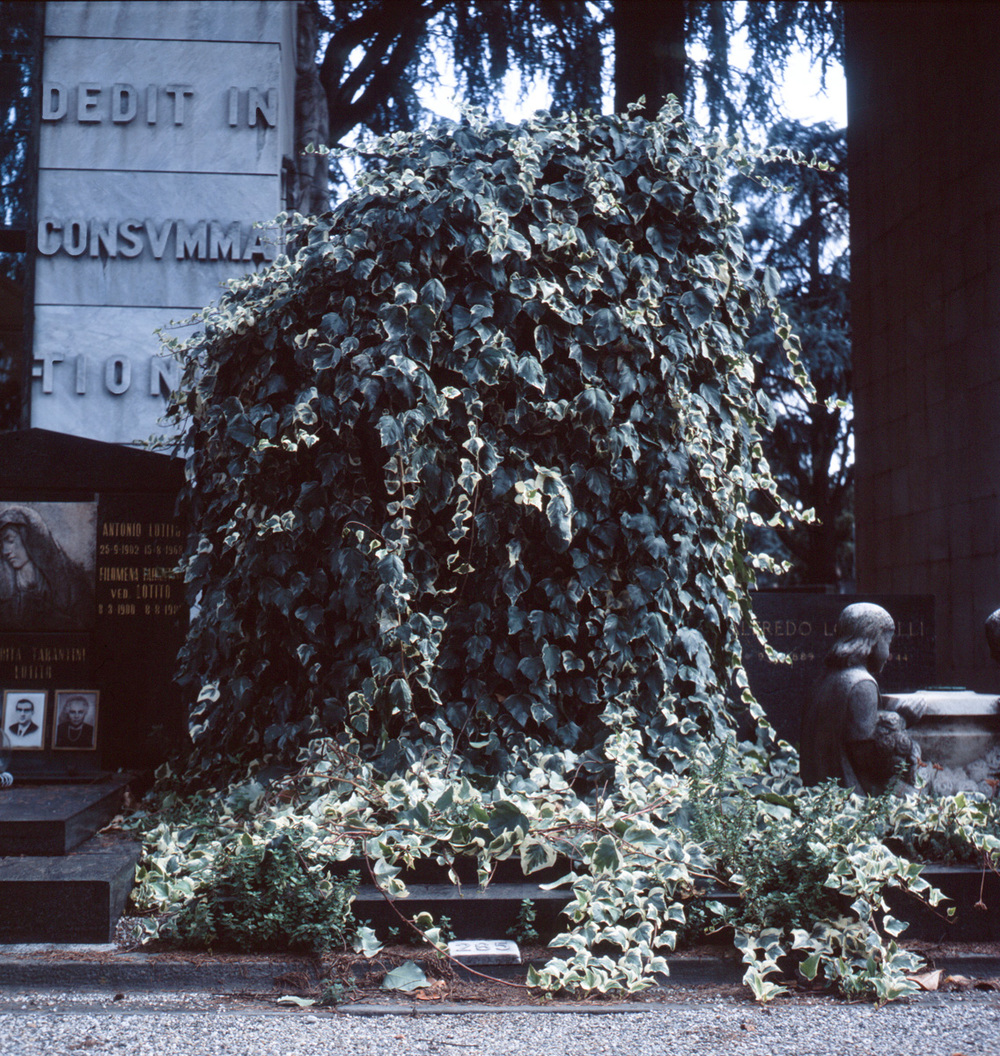
Sigmund Freud's essay 'Transience' (1915) resonates deeply with the images I have made of overgrown graves. In these images, the tombs, shrouded in nature's reclamation, evoke Freud's investigations into transience and the fleeting nature of human existence.
As I observe the overgrown graves, I am reminded of Freud's claim that change and decay are inherent in our human experience. The process that causes the tombs to darken over time reflects the transient essence of all things in life.
Freud's insights also extend to the domain of memory and human connections. Just as the elements endure the physical tombs, so too do the memories fade and lose their clarity over time. The essay's exploration of how fond memories gradually lose their sharpness and vividness resonates deeply as I gaze at these overgrown resting places.
Viewing these tombs through the lens of Freud's "Transience" prompts me to reflect on the transience of life and the traces we leave behind. Nature's gradual reclamation becomes a poignant metaphor for the gradual fading of our physical presence. Freud's philosophical musings underline the universal truth that everything changes and eventually disappears, emphasizing the significance of embracing the present and cherishing the fleeting moments we have.
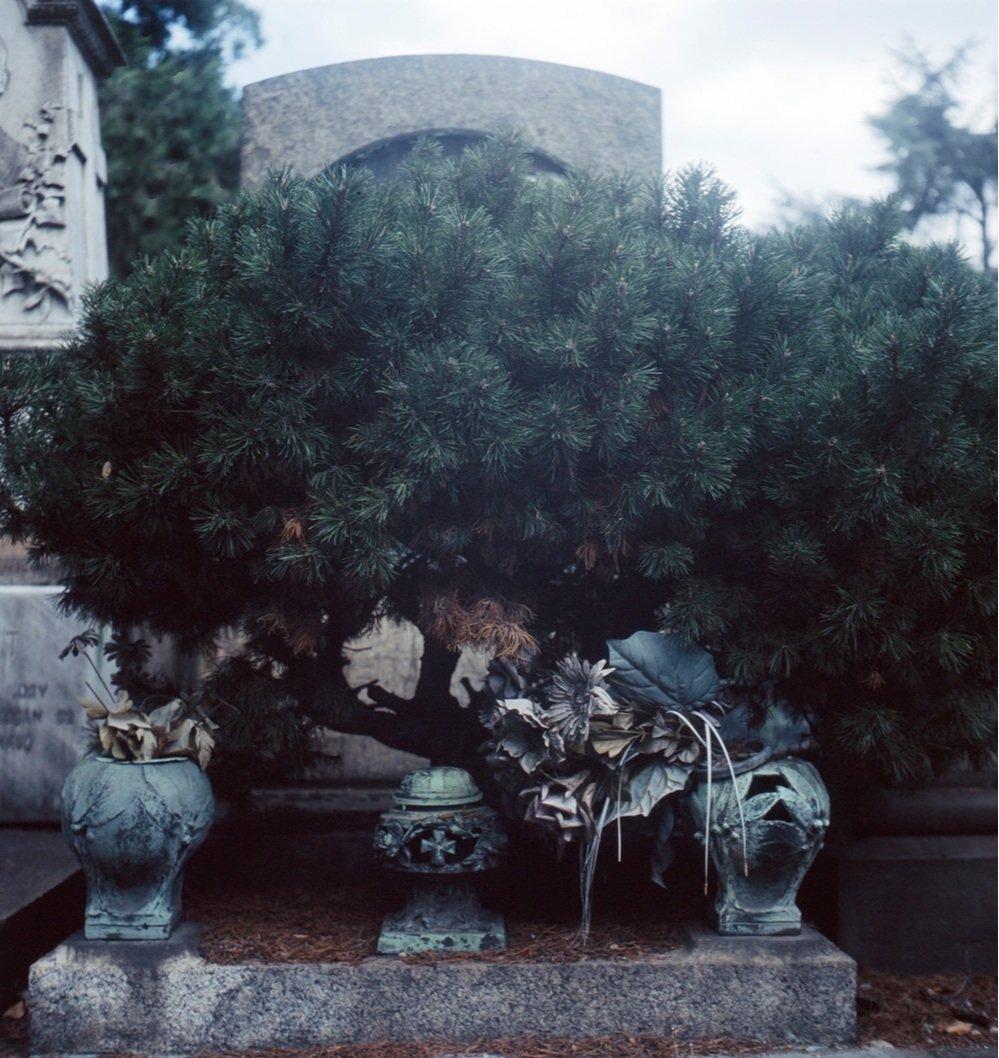
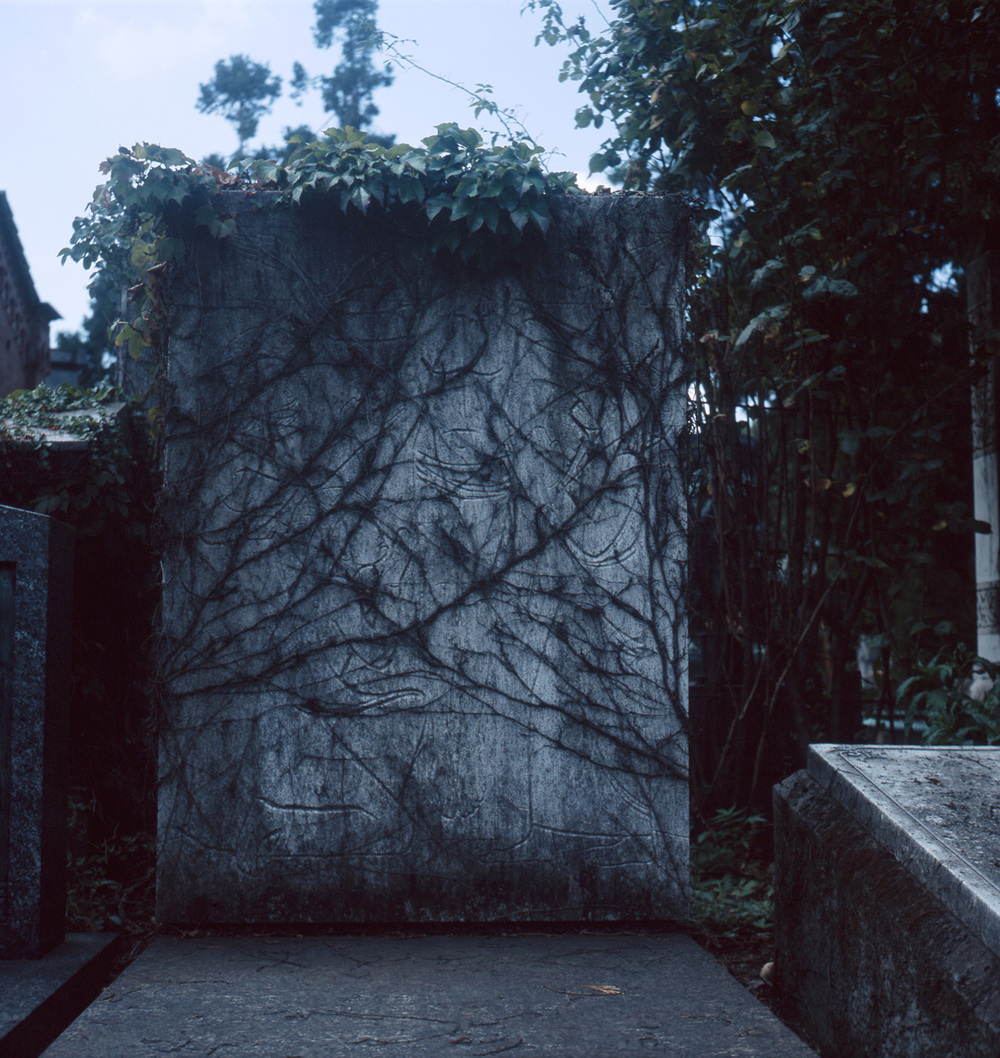
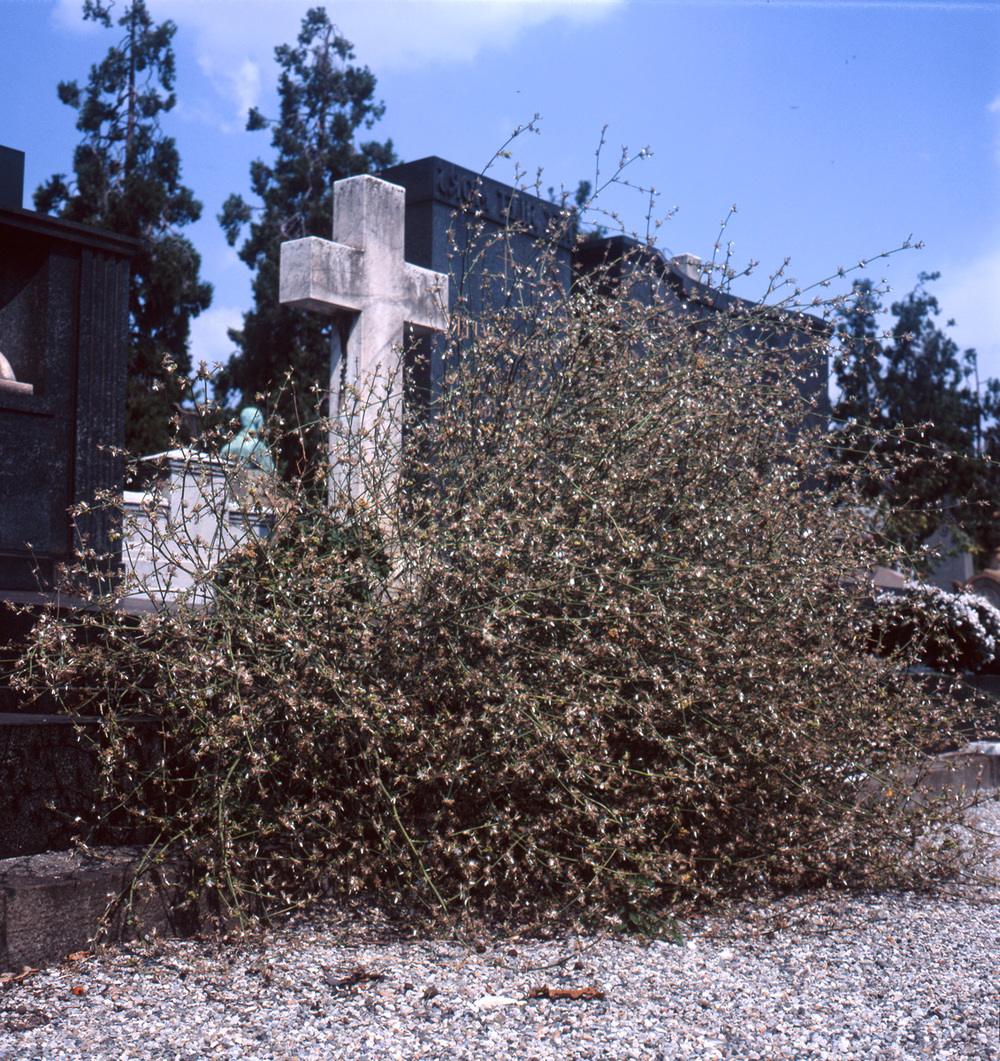
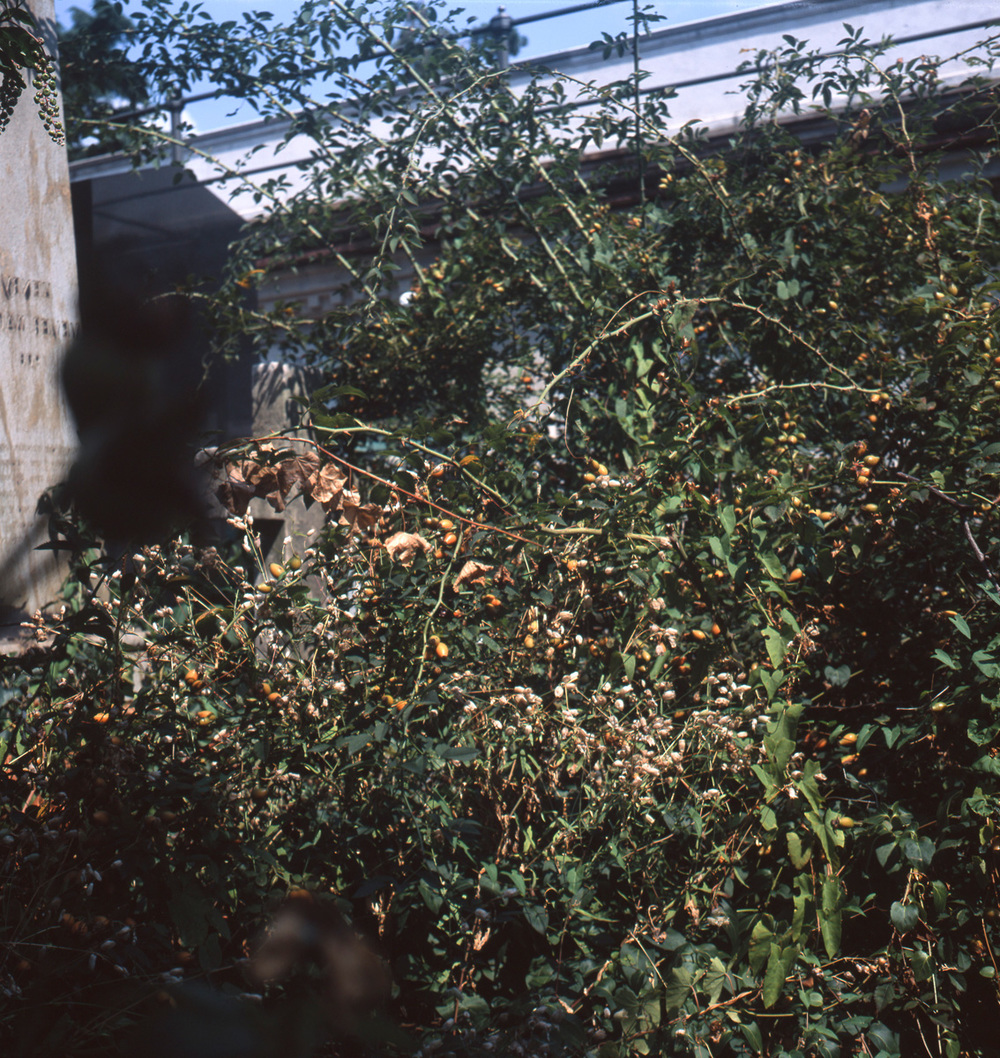
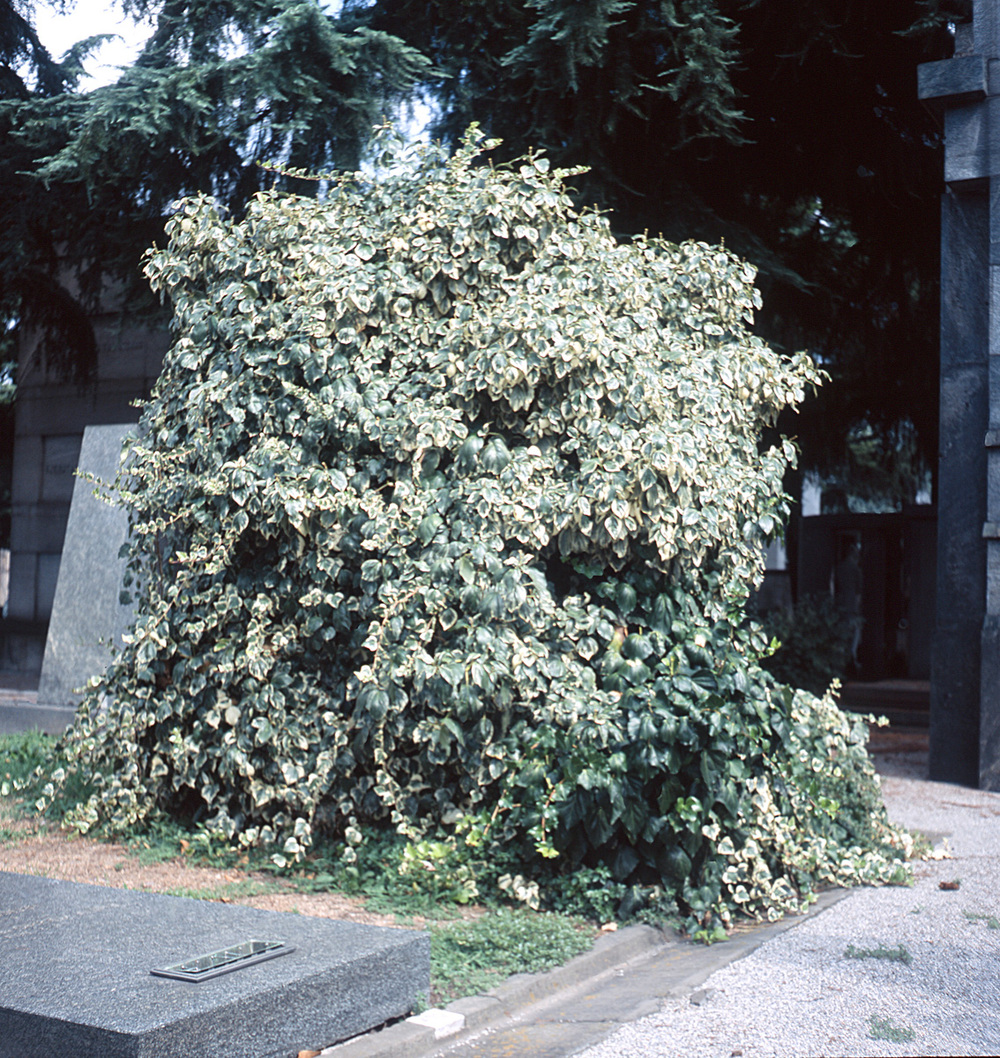
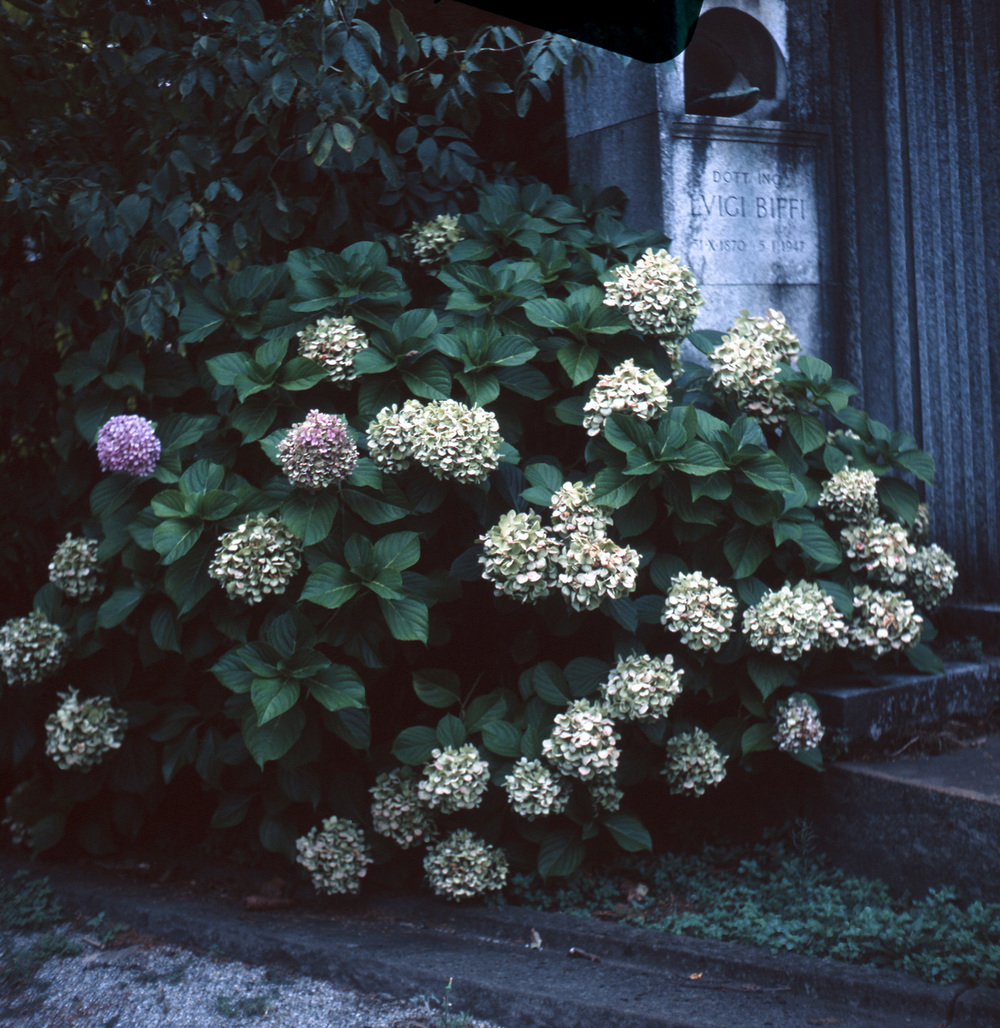
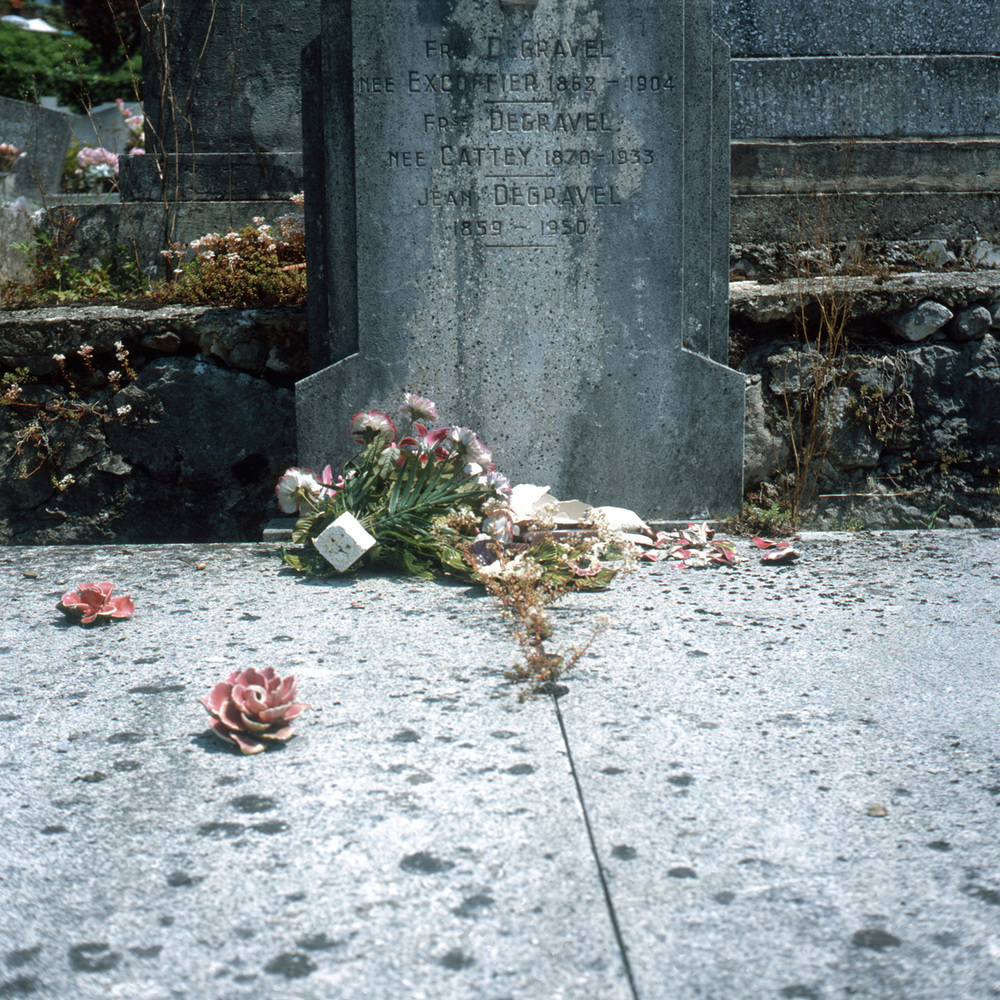
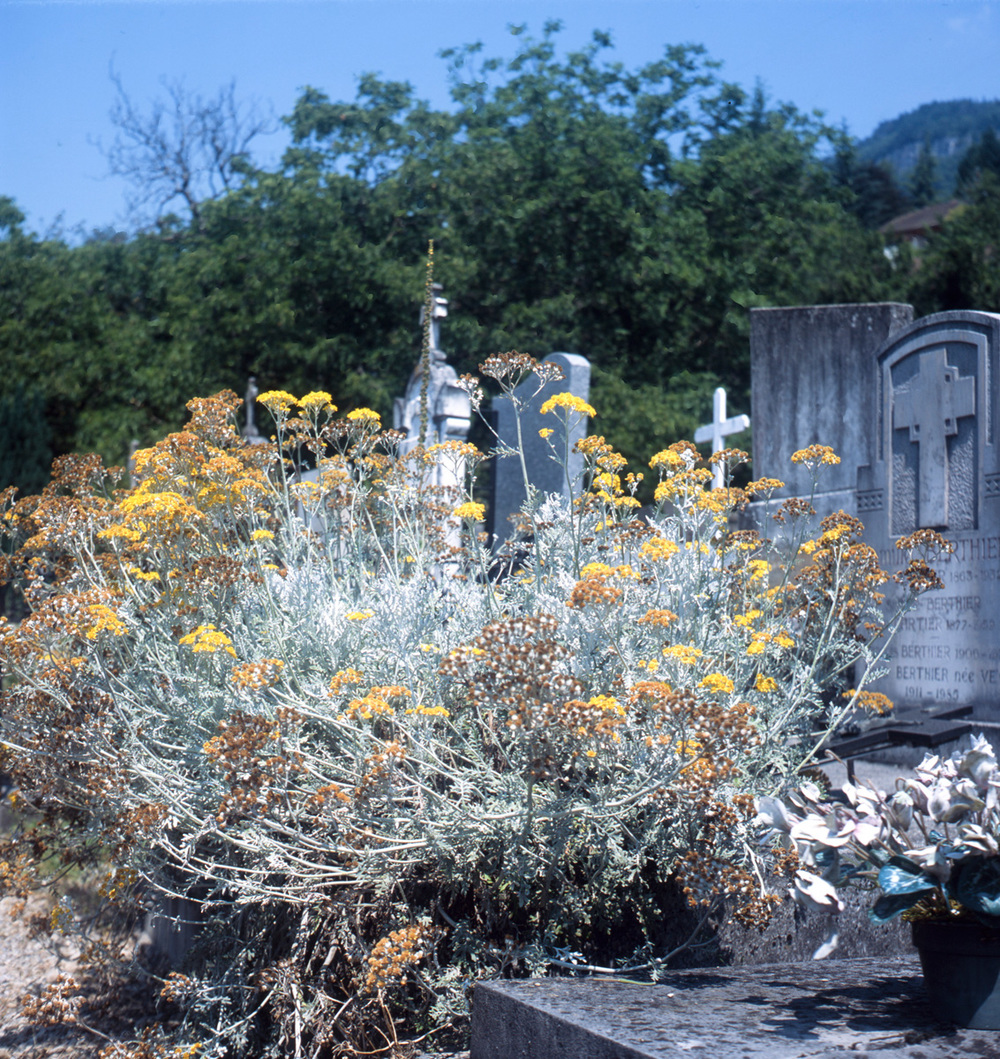









Sigmund Freud's essay 'Transience' (1915) resonates deeply with the images I have made of overgrown graves. In these images, the tombs, shrouded in nature's reclamation, evoke Freud's investigations into transience and the fleeting nature of human existence.
As I observe the overgrown graves, I am reminded of Freud's claim that change and decay are inherent in our human experience. The process that causes the tombs to darken over time reflects the transient essence of all things in life.
Freud's insights also extend to the domain of memory and human connections. Just as the elements endure the physical tombs, so too do the memories fade and lose their clarity over time. The essay's exploration of how fond memories gradually lose their sharpness and vividness resonates deeply as I gaze at these overgrown resting places.
Viewing these tombs through the lens of Freud's "Transience" prompts me to reflect on the transience of life and the traces we leave behind. Nature's gradual reclamation becomes a poignant metaphor for the gradual fading of our physical presence. Freud's philosophical musings underline the universal truth that everything changes and eventually disappears, emphasizing the significance of embracing the present and cherishing the fleeting moments we have.